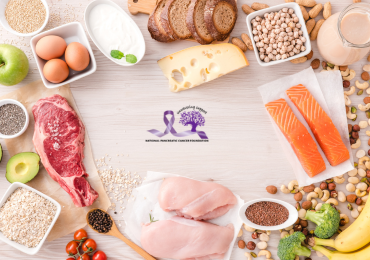Estimated reading time: 8 minutes
Key Takeaways
- Pancreatic cancer significantly disrupts digestion and blood sugar regulation, requiring specialized nutritional approaches.
- Focus on protein prioritization with 25-30 grams per meal and easily digestible fats for concentrated calories.
- Pancreatic Enzyme Replacement Therapy (PERT) is crucial for improving digestion and nutrient absorption.
- Small, frequent meals (5-6 daily) reduce digestive burden while maintaining caloric intake.
- Collaboration with registered dietitians ensures personalized nutrition strategies throughout treatment.
Table of contents
Nutrition plays a pivotal role in managing pancreatic cancer, yet it remains one of the most challenging aspects for patients and their families. The pancreas’s dual function, producing digestive enzymes and regulating blood sugar—becomes severely compromised, creating a cascade of nutritional complications that require immediate and ongoing attention.
Nutritional Challenges in Pancreatic Cancer
Pancreatic cancer disrupts the organ’s dual functions—digestive enzyme production and blood sugar regulation. This often leads to:
- Rapid weight loss due to malabsorption
- Steatorrhea (excess fat in stools)
- Early satiety and reduced appetite
- Increased risk of diabetes or blood sugar instability
Adequate nutrition becomes critical for preserving muscle mass, supporting treatment tolerance, and maintaining energy levels. Individual needs vary significantly based on treatment type (surgery, chemotherapy, or radiation), pre-existing conditions, and symptom severity. Collaboration with a registered dietitian ensures personalized guidance. For additional comprehensive nutritional guidance, readers can explore our Nutrition Tips for Pancreatic Cancer Patients.
Core Dietary Principles
Protein Prioritization
Aim for 25-30 grams of protein per meal from:
- Lean animal sources (fish, poultry, eggs)
- Plant-based options (tofu, lentils, quinoa)
- Dairy or fortified alternatives (Greek yogurt, pea protein)
Strategic Fat Selection
Incorporate easily digestible fats for concentrated calories:
- Monounsaturated fats: Olive oil, avocados
- Omega-3s: Salmon, chia seeds
- MCT oil (requires fewer enzymes for absorption)
Carbohydrate Management
- Emphasize low-glycemic whole grains (steel-cut oats, barley)
- Pair carbs with protein/fat to stabilize blood sugar
- Adjust fiber intake based on tolerance
For further insights on optimizing your overall diet, check out our Diet Tips For Pancreatic Cancer Patients.
Practical Meal Timing
- 5-6 small meals daily reduce digestive burden
- Protein-rich snacks prevent muscle catabolism
- Liquid nutrition (smoothies, oral supplements) helps when solid intake is limited
Calorie-Dense Meal Strategies
Sample High-Protein Smoothie
Blend:
- 1 cup oat milk
- ½ cup silken tofu
- 2 tbsp almond butter
- 1 banana
- 1 tbsp flaxseeds
(450 kcal, 22g protein)
Nutrient-Boosted Recipes
- Mashed Sweet Potatoes: Mix with coconut milk and whey protein powder
- Overnight Oats: Soak oats in full-fat yogurt, top with walnuts and honey
For more meal planning inspiration and to ensure your meals are as effective as possible, see our Pancreatic Cancer: Effective Meal Planning Guide.
Snacking Solutions
- Hard cheeses with whole-grain crackers
- Edamame sprinkled with sea salt
- Chia pudding made with coconut milk
Foods That May Exacerbate Symptoms
Limit or Avoid:
- Fried foods: High fat content worsens steatorrhea
- Processed meats: Linked to carcinogens; difficult to digest
- Alcohol: Strains liver function and promotes dehydration
- Raw cruciferous vegetables: May cause bloating if enzyme-deficient
Alternative Choices:
- Steam vegetables instead of consuming them raw
- Choose baked or poached proteins over charred or grilled
- Opt for herbal teas instead of carbonated beverages
If you’re looking for creative, pancreatic-friendly recipes that are easier on the digestive system, consider exploring our Pancreatic-Friendly Recipes and Cooking Advice.
Weight Maintenance During Treatment
Proactive Approaches:
- Pre-emptive meal prep: Freeze portions for low-energy days
- Calorie tracking: Apps help identify intake gaps
- Environment optimization: Pleasant settings may improve appetite
Managing Side Effects:
- Nausea: Ginger tea or acupressure bands
- Taste changes: Citrus marinades or metallic-free utensils
- Early fullness: Caloric beverages between meals
Integrating Enzyme Replacement Therapy
Pancreatic Enzyme Replacement Therapy (PERT) compensates for impaired digestion:
- Dosing: Typically 25,000–75,000 units of lipase per meal
- Timing: Take capsules with first bites, not before or after
- Adjustments: Dosage varies by meal size and fat content
Patients report improved symptom control and weight stability within weeks of starting PERT when used correctly.
Adaptive Eating Strategies
Hydration Tips:
- Sip electrolyte solutions throughout the day
- Avoid drinking 30 minutes before meals to prevent early fullness
For additional hydration strategies tailored for pancreatic cancer patients, please visit Pancreatic Cancer: Essential Hydration Strategies.
Collaboration with Providers:
- Request baseline nutrition assessments
- Schedule follow-ups every 4-6 weeks during treatment
- Discuss supplements (e.g., vitamin D, B12) if deficiencies exist
Patient Experiences and Insights
James, 68: “Switching to six mini-meals with PERT allowed me to regain 10 pounds during chemo. My dietitian’s tip to add avocado to everything was a game-changer.”
Nina, 54: “Learning which fats my body could tolerate, olive oil yes, butter no, made meals enjoyable again.”
Frequently Asked Questions
Can dietary changes slow cancer progression?
While nutrition supports quality of life and treatment resilience, no diet can cure pancreatic cancer. Focus on mitigating side effects and maintaining strength throughout treatment.
Are “sugar feeds cancer” concerns valid?
Excess sugar may promote inflammation, but moderate intake of whole-food carbohydrates is often necessary to maintain weight. Work with your healthcare team to balance blood sugar management with caloric needs.
How quickly should I expect to see improvements with PERT?
Most patients notice reduced steatorrhea and improved digestion within 1-2 weeks of starting properly dosed enzyme replacement therapy. Weight stabilization may take longer.
What should I do if I’m losing weight despite following dietary recommendations?
Contact your healthcare team immediately. You may need adjustments to enzyme dosing, additional nutritional supplements, or evaluation for other complications affecting absorption.




